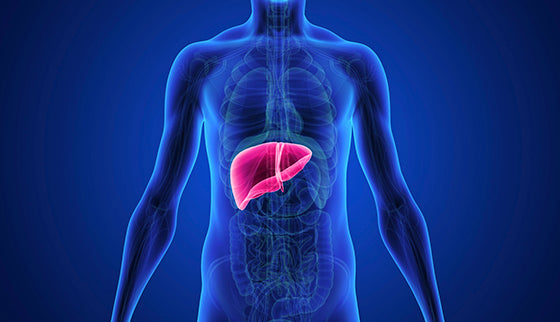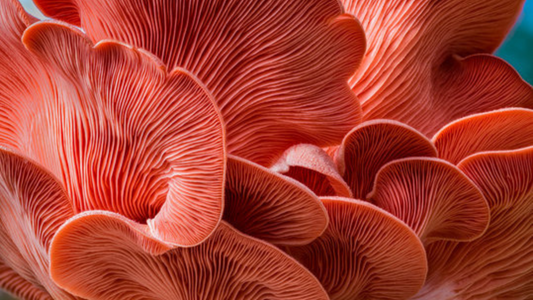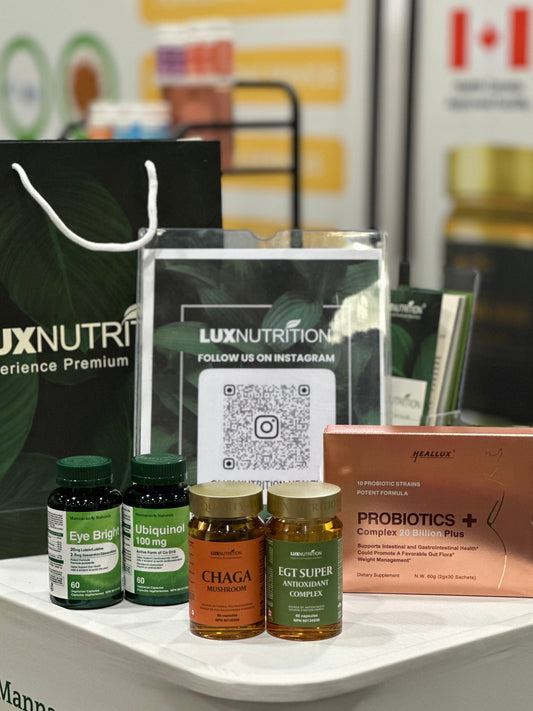
Ergothioneine and Liver Health: What the Research Really Says
Introduction
Ergothioneine (ET or EGT) is gaining attention as a potential wellness supplement for liver health. But what exactly is ergothioneine, and how can it support your liver? Researchers have found that this naturally occurring amino acid derivative – notably abundant in mushrooms – has remarkable antioxidant and anti-inflammatory properties. These properties enable ergothioneine to protect liver cells from damage, whether caused by toxic chemicals or unhealthy diets. Recent animal studies have demonstrated that ergothioneine can shield the liver from chemical toxins and even slow the progression of fatty liver disease. Importantly, safety evaluations indicate that it’s well-tolerated with no significant side effects. In this article, we’ll break down the science of how ergothioneine supports liver health and why you might consider adding this supplement to your wellness routine.
What is Ergothioneine?
Ergothioneine is a unique amino acid derivative (a thiol compound) originally discovered in ergot fungi and now known to be made by certain bacteria and fungi. It is sometimes called a “longevity vitamin” because it concentrates in many tissues of the body and is thought to help protect cells from wear and tear. Our bodies actually have a specific transporter protein (OCTN1) to take up ergothioneine, underscoring its importance. We cannot make ergothioneine ourselves – we get it from diet or supplements. Natural food sources include mushrooms (the richest source by far), certain beans, organ meats (offal), and whole grains. Once absorbed, ergothioneine is distributed to organs like the liver, kidneys, brain, and eyes, where it can exert its protective effects.
One reason ergothioneine is so special is its antioxidant power. As a stable antioxidant, it can neutralize many harmful free radicals and reactive oxygen species. In fact, studies show ergothioneine scavenges some of the most destructive radicals, including hydroxyl radicals and peroxynitrite. It also helps regenerate or spare other antioxidants like vitamin E and glutathione in the body. Additionally, ergothioneine has anti-inflammatory effects – it appears to inhibit excessive inflammation that often accompanies oxidative stress. These twin abilities (antioxidant and anti-inflammatory) make ergothioneine a compelling nutrient for protecting cells, especially in organs like the liver that are prone to oxidative damage.
Antioxidant and Anti-Inflammatory Properties
Oxidative stress and inflammation are two major enemies of liver health. Chronic oxidative stress in the liver can lead to cell damage, fibrosis, and eventually conditions like fatty liver or cirrhosis. Ergothioneine helps combat these processes on multiple fronts. As noted above, ergothioneine directly neutralizes reactive oxygen species. Notably, researchers have shown that ergothioneine can scavenge peroxynitrite, a highly reactive nitrogen species that can otherwise wreak havoc on proteins, DNA, and cell membranes. By doing so, ergothioneine prevents the harmful nitration of tyrosine residues in proteins – essentially stopping a chain reaction that would impair cell function This kind of activity was demonstrated in cell studies where ergothioneine protected brain cells from oxidative death; it worked in part by suppressing peroxynitrite formation and the subsequent damage it causes. The implication is that in liver cells, which frequently face oxidative assaults from toxins or fat accumulation, ergothioneine could similarly reduce damage.
Hand-in-hand with reducing oxidative stress, ergothioneine also has targeted anti-inflammatory effects. Inflammation in the liver (hepatitis) can be triggered by oxidative damage or toxins and can further damage liver tissue. Ergothioneine’s ability to dial down inflammatory signaling means it may help break this vicious cycle. In some experimental models, ergothioneine lowered levels of pro-inflammatory cytokines and related liver inflammation markers. By both quenching free radicals and calming inflammation, ergothioneine provides a one-two punch in favor of liver cell survival and function. Essentially, it creates a more favorable environment for liver cells to recover and stay healthy even under stress.
Protecting Liver Cells from Chemical Damage
Your liver can be thought of as the body’s detoxifier – it’s constantly neutralizing chemicals and toxins. Unfortunately, some chemicals can severely injure the liver. Carbon tetrachloride (CCl₄) is a prime example of a liver-toxic chemical (a hepatotoxin) that researchers often use to induce liver damage in animal studies. CCl₄ exposure generates a surge of free radicals in the liver, leading to lipid peroxidation (oxidative destruction of cell membranes), inflammation, enzyme leakage, and cell death. Ergothioneine has shown impressive protective effects in this context. In one study, rats exposed to CCl₄ were pretreated with ergothioneine to see if it could mitigate the toxin’s damage. The results were promising: the ergothioneine-treated rats had significantly lower levels of liver enzymes (ALT, AST, LDH) released into the blood compared to untreated rats. These enzymes typically spike when liver cells are damaged, so their reduction indicates less injury occurred.
Histological examinations (looking at liver tissue under a microscope) in such studies also show that ergothioneine can reduce the hallmark signs of chemical liver injury (like cell necrosis and inflammatory cell infiltration). Essentially, ergothioneine appears to shield liver cells from the oxidative onslaught triggered by toxins. Researchers believe this is due to ergothioneine’s antioxidant action – it likely neutralizes the CCl₄-induced free radicals before they can destroy cell membranes and proteins. Interestingly, in the same study, animals given ergothioneine had better survival rates after the toxic exposure than those that did not receive it. In fact, the ergothioneine-pretreated group’s one-week survival was substantially higher (80% versus 50% in controls). Such findings reinforce that ergothioneine’s protective effect is not just on lab measurements, but it tangibly improved outcomes for the animals. While these are preclinical (animal) results, they strongly suggest that ergothioneine can fortify the liver against acute chemical stresses. For anyone concerned about environmental toxins or occasional chemical exposures, this mechanism of protection is an exciting prospect.
Shielding Against Fatty Liver Disease
Beyond acute toxins, our livers often face a more common threat: fatty liver disease caused by poor diet and lifestyle. Non-alcoholic fatty liver disease (NAFLD) – recently re-termed metabolic dysfunction-associated steatotic liver disease (MASLD) – occurs when fat builds up in the liver and is often driven by diets high in fat, sugar, and calories (the typical “Western diet”). This condition can progress to inflammation (steatohepatitis), fibrosis, and liver dysfunction. Encouragingly, ergothioneine may help halt or slow the progression of fatty liver disease. Scientists have tested ergothioneine in dietary-induced models of NAFLD, and the results are notable.
In a 2023 study, mice fed a Western-style high-fat diet were given ergothioneine supplements to see if it could mitigate liver damage. The ergothioneine-supplemented mice showed significantly less fat accumulation in their livers than the control mice on the same unhealthy diet. They also gained less overall body weight and body fat, despite the high-calorie intake. Metabolic health markers improved: for example, the ergothioneine group had better insulin sensitivity (indicating protection against diet-induced diabetes) and lower blood lipid levels than the unsupplemented group. Essentially, adding ergothioneine blunted many of the worst effects of the fatty diet.
Crucially, signs of liver injury and inflammation were reduced in the ergothioneine-treated mice. Liver enzyme levels (ALT/AST) and inflammatory mediators were lower, and oxidative stress markers in the liver were also decreased. The livers of ergothioneine-supplemented mice had healthier histology – less fat droplet accumulation and less inflammatory cell invasion – compared to the fatty, inflamed livers of untreated mice. Researchers discovered that one way ergothioneine achieved this was by boosting autophagy in liver cells. Autophagy is a cellular “self-cleaning” process that helps clear out damaged organelles and excess fat from cells. By enhancing autophagy, ergothioneine likely helped liver cells cope with the surplus fat and prevent it from causing toxicity. Overall, these findings from animal models suggest that ergothioneine could be a useful adjunct for maintaining a healthy liver in the face of a poor diet or metabolic risk factors. It’s a sign of its promise for liver health support: helping to prevent simple fatty liver from escalating into more serious liver disease. While human trials will be needed, the animal evidence positions ergothioneine as a potential guardian against diet-related liver damage.
Safety and Tolerability of Ergothioneine
Whenever a new supplement gains popularity, safety is a top concern. Fortunately, ergothioneine has an excellent safety profile based on current research. It’s a naturally occurring compound that our bodies are accustomed to (we’ve been eating it for ages in foods), and our cells actively transport and retain it without issue. Scientific safety evaluations, including high-dose animal studies, have found no significant toxicity or adverse effects from ergothioneine. For instance, a comprehensive rat study examined both subchronic toxicity (giving ergothioneine daily for 90 days) and reproductive toxicity. The researchers reported no clinical signs of toxicity at any dose tested and no negative effects on growth, organ health, or fertility. Even at extremely high intake levels – the equivalent of hundreds of milligrams per kilogram of body weight – ergothioneine was well tolerated and did not harm the rats’ reproductive performance or offspring.
In fact, regulatory bodies have reviewed ergothioneine as a novel supplement/food ingredient and deemed it safe. A European Food Safety Authority (EFSA) panel concluded that synthetic ergothioneine (identical to the natural form) is safe for use in foods and supplements at intended doses. They identified a no-observed-adverse-effect level (NOAEL) of about 800 mg per kg body weight per day in animal studies – an extremely high threshold far above what a human would realistically consume. This translates to very large margins of safety for typical supplement doses. To put it in perspective, an adult taking a 30 mg supplement of ergothioneine daily is taking a tiny fraction of the amount that showed no harm in animals. Moreover, no evidence of genotoxicity (DNA damage) or any specific organ toxicity has been found in studies.
All this data reinforces that ergothioneine is generally safe and well-tolerated. People who take ergothioneine supplements commonly report that it’s as easy on the system as a vitamin – it doesn’t cause the stomach upset or jittery effects that some supplements do. Of course, if you are pregnant, nursing, or have specific medical conditions, it’s wise to consult a healthcare provider before starting any new supplement. But the existing research is very reassuring: even as ergothioneine provides powerful antioxidant benefits, it does so without causing harm, even at doses much higher than one would ever use in daily life.
Conclusion: Supporting Your Liver with Ergothioneine
Our livers work hard every day, and nutrients like ergothioneine can give them an extra line of defense. Science is unveiling that ergothioneine – a humble amino acid from mushrooms – acts as a cell guardian, protecting the liver from oxidative stress, toxic injuries, and inflammation. Animal studies have shown it can prevent liver enzymes from spiking after toxin exposure, reduce fat-induced liver damage, and improve overall liver function markers. Its antioxidant and anti-inflammatory dual action, combined with a stellar safety record, make it a compelling supplement for liver wellness.
For readers focused on maintaining a healthy liver (or overall vitality), it may be time to consider ergothioneine. You can start by enjoying more ergothioneine-rich foods like mushrooms or beans as part of a balanced diet. Additionally, ergothioneine is available as a supplement – typically in capsule form – that can conveniently ensure you’re getting a beneficial amount daily. Given its safety and the promising research, adding an ergothioneine supplement to your wellness routine is an easy step that could pay off in better liver health and resilience. As always with supplements, choose a high-quality product from a reputable brand. With ergothioneine’s help, you’ll be proactively supporting your liver’s natural detoxification and protective processes. In summary, this mighty antioxidant from nature may be the next smart addition to your regimen – your liver will thank you!
References: Ergothioneine and liver health findings are based on recent research, including studies on CCl₄-induced hepatotoxicity, peroxynitrite scavenging and cell protection, Western diet-induced NAFLD models, and safety assessments in rats. These studies highlight the antioxidant, anti-inflammatory, and cytoprotective roles of ergothioneine, as well as its safety for supplementation.





